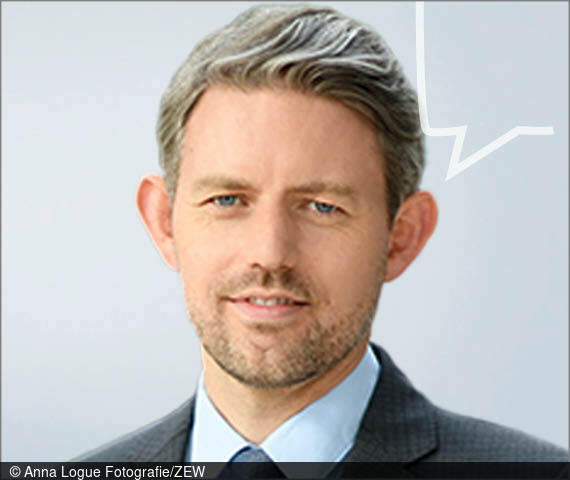The Goal is to Strengthen the ex-ante Evaluation of Climate and Energy Policy
Questions & AnswersInterview with ZEW Economist Sebastian Rausch
At the beginning of August, Sebastian Rausch joined ZEW as the head of the research department of Environmental and Resource Economics, Environmental Management. Following positions at MIT and ETH Zurich, he accepted the post at ZEW along with a professorship in environmental and energy economics at Heidelberg University.
In this Q&A, Rausch talks about his work at ZEW and explains how environmental economics can help in the fight against global warming.
What aims will you pursue in your work at ZEW?
I intend to amplify my work on emissions and energy market design and bring it to bear on climate and economic policy debates. In recent years, the global climate debate has increased public awareness for the environment’s importance for human well-being. The ZEW and the renowned economics departments at the Universities of Heidelberg and Mannheim area ideal environments for carrying out research on the key environmental and economic challenges of our time.
What are your research interests?
My research aims to understand the role of economic policy in shaping the intertwined challenges of the environment, energy, technology and economic well-being. I am primarily concerned with the evaluation of markets and economic policy measures that curb climate change and the design of sustainable energy-economy systems. I use applied theoretical and numerical methods of empirical economic research at the intersection of environmental and energy economics, public economics and computational economics, with interdisciplinary linkages to energy system analysis and the environmental sciences.
What can environmental economics contribute to the political debate about the clean-energy transition?
Energy is the elixir of life in modern societies. The steadily growing demand for energy is largely linked to economic development. Delivering reliable and affordable energy while reducing dependence on fossil fuels in order to avoid negative effects on the economy and the environment represents a key challenge in the 21st century. Environmental economics and the sub-discipline of energy economics examine the factors that generate energy supply and demand. They are crucial, therefore, for understanding the effects of industry on the environment, such as global climate change and local air pollution, but also environmental feedback effects on the economy. In conjunction with other social and behavioural sciences, environmental economics also provides approaches for pushing consumer and company behaviour to sustainable energy management while weighing the positive and negative effects of various alternatives.
Which economic incentives are needed to achieve climate targets?
The economic analysis of climate policy is largely based on the idea that the harmful environmental effects of economic activities through, say, CO2 emissions, represent an externality, an economically significant effect of an activity whose consequences are borne at least in part by those who did not cause the externality. Climate policy tries to compensate for this imbalance by increasing the incentive to minimize external costs. This results in a strong role for the pricing of CO2 emissions through a carbon tax or markets for tradable emission rights. This is the idea behind the European emissions trading system and the introduction of national fuel emissions certificate trading in Germany. However, other economic policy interventions may also be necessary. For example, the failure of the market to account for the costs of carbon emissions interacts with the failure of the market to develop and disseminate new technologies. Together, the market failures provide a strong rationale for introducing a portfolio of public policies that encourage emissions reductions and the development and adoption of climate-friendly technologies. Positive knowledge and adoption spillovers and information problems can further weaken incentives to innovate. Technology policies such as subsidies, performance standards and mandates for the adoption of specific existing technologies is usually fraught with difficulties. They are less cost-efficient than market-based approaches and often have considerable distributional consequences.
What new projects are you planning at ZEW?
Determining which economic policy measures can be used to achieve ambitious climate protection goals requires knowledge of the complex relationships between consumers and companies, markets, technology and regulation. At ZEW, I would like to develop new expertise in the economic modelling of emissions and energy markets, especially with a view to their macroeconomic interrelations. The goal is to strengthen the ex-ante evaluation of energy and climate policy and thereby complement the institute’s existing work on ex-post evaluation. The focus here will be on issues such as CO2 pricing; the integration of the electricity, heat and transport sectors; the expansion of renewable energy; the economy-wide impact assessment and distributional effects of climate and energy policy; and the European integration of the German clean-energy transition.

